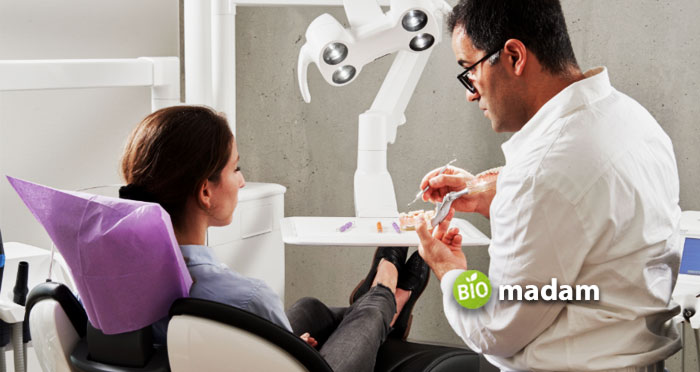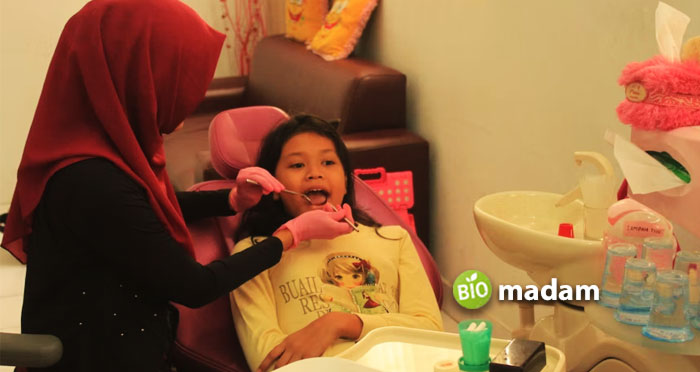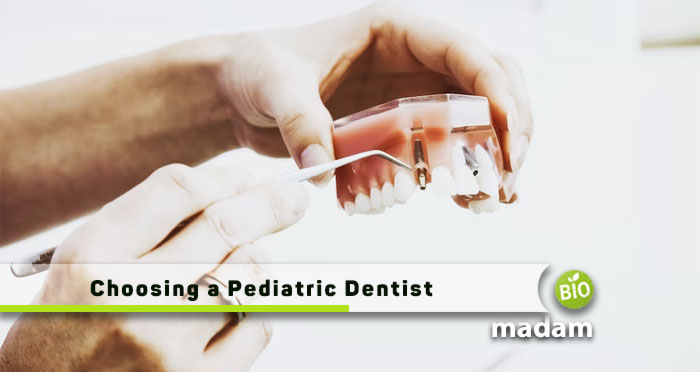Recently updated on January 31st, 2024 at 07:48 am
As parents, we want nothing but the best for our children, and their oral health is no exception. Finding the right pediatric dentist is a crucial decision that can impact our little ones’ dental care journey and set the foundation for a lifetime of healthy smiles. With an overwhelming number of dental professionals claiming to be experts in pediatric dentistry, it can be daunting to sift through the options. However, fear not! In this comprehensive guide, we’ll walk you through the essential factors to consider when choosing a pediatric dentist, ensuring you make an informed decision that brings peace of mind to you and a positive dental experience for your child.
Qualifications and Specialization
The first step in choosing a pediatric dentist is evaluating their qualifications and specialization. Look for a dentist who has completed a four-year dental degree and further pursued a two-year residency program, specializing in pediatric dentistry. A pediatric dentist is uniquely trained to work with children, infants, and adolescents, understanding their distinct dental needs at different developmental stages, as this team from Kaleidoscope Dentistry explains. A specialist in this field will have extensive knowledge of child psychology, behavior management, and preventive care techniques tailored to younger patients.
Recommendations and Reviews
Word-of-mouth recommendations from trusted family, friends, or other parents can be invaluable when selecting a pediatric dentist. Hearing about their firsthand experiences can provide valuable insights into the dentist’s demeanor, office environment, and the way they interact with children. Additionally, check online reviews and testimonials to gain a broader perspective on the dentist’s reputation and overall patient satisfaction. While one or two negative reviews might not be cause for concern, a pattern of consistent complaints should raise a red flag.

Office Environment and Child-Friendly Atmosphere
A dental office should be a welcoming and child-friendly space, promoting a positive and comfortable experience for your little one. Observe the waiting area for age-appropriate toys, books, or games that can distract and engage children. A pediatric dentist’s office often includes colorful decor, cheerful artwork, and even TV screens to help alleviate dental anxiety in young patients. A welcoming environment can go a long way in making your child feel at ease during dental visits.
Communication and Interpersonal Skills
When it comes to pediatric dentistry, effective communication is key. A good pediatric dentist should have exceptional interpersonal skills, enabling them to connect with children and establish a bond of trust. During your initial visit, pay attention to how the dentist communicates with your child. Do they use age-appropriate language and take the time to explain procedures in a non-threatening manner? A dentist who can build a rapport with your child will likely create a more positive and cooperative dental experience.
Emphasis on Preventive Care
Preventive dental care is the cornerstone of maintaining optimal oral health in children. An excellent pediatric dentist should prioritize preventive measures such as regular check-ups, dental cleanings, and fluoride treatments. They should also educate parents and children about the importance of proper oral hygiene and offer personalized advice on brushing, flossing, and nutrition to promote healthy dental habits at home.
Sedation and Behavior Management Techniques
While most dental procedures for children are routine and minimally invasive, there may be instances where more extensive treatments are necessary. In such cases, the dentist should be well-versed in various behavior management techniques, including nitrous oxide (laughing gas) and oral sedation, to help anxious or uncooperative children feel comfortable during the procedure. A skilled pediatric dentist can make the difference between a traumatic experience and a smooth, stress-free one.
Emergency Care Accessibility
Children are prone to accidents, and dental emergencies can happen unexpectedly. Therefore, it is crucial to choose a pediatric dentist who offers accessible emergency care services. Inquire about their policies for handling urgent cases, whether during regular office hours or after hours. Knowing that your dentist is available to address any dental emergencies can bring peace of mind and a sense of security to parents.
Location and Accessibility
Another important aspect to consider when choosing a pediatric dentist is their office location and accessibility. Opt for a dentist located conveniently close to your home or your child’s school, as this can save you valuable time and make scheduling appointments much more manageable. A shorter commute can also be beneficial in case of any unexpected dental emergencies. Additionally, consider the accessibility of the dental office. Are there ample parking facilities? Is the office located on the ground floor or easily accessible by elevators for families with strollers or mobility challenges? A location that prioritizes convenience and ease of access can make the dental journey smoother for both you and your child.
Technology and Equipment
Advancements in dental technology have greatly improved the quality of care and treatment outcomes. When selecting a pediatric dentist, inquire about the types of technology and equipment they use in their practice. A dentist who invests in modern equipment, such as digital X-rays and intraoral cameras, can provide more accurate diagnoses and more efficient treatments. Advanced technology can also make dental visits more engaging for children, as they may find it fascinating to see images of their teeth on a computer screen. A dental office that stays up-to-date with the latest tools and techniques demonstrates a commitment to providing top-notch care.
Parental Involvement and Education
A dentist who involves parents in their child’s dental care journey fosters a collaborative approach to oral health. Look for a pediatric dentist who encourages parental involvement and is willing to address any concerns or questions you may have. A dentist who takes the time to educate parents about proper oral hygiene techniques, age-specific dental milestones, and potential dental issues to watch out for can empower parents to take an active role in their child’s oral health. Regular communication and guidance from the dentist can reinforce good dental habits at home and promote long-term dental well-being for your child.

In conclusion, choosing a pediatric dentist for your child requires careful consideration of various factors. By prioritizing qualifications, specialization, and recommendations, you can ensure that your child receives the best possible dental care from an experienced and trusted professional. A child-friendly office environment, effective communication, and emphasis on preventive care are essential aspects that contribute to a positive dental experience for your little one.
In addition, consider the dentist’s expertise in behavior management techniques and accessibility for emergency care services. A pediatric dentist who can handle unexpected situations with skill and sensitivity will give you peace of mind in any dental scenario. The location and accessibility of the dental office, along with their use of modern technology and equipment, can also enhance the overall experience for both you and your child.
Lastly, value a pediatric dentist who involves parents in the process, provides educational resources, and encourages a collaborative approach to oral health. Armed with this comprehensive guide, you can confidently select a pediatric dentist who will partner with you in nurturing your child’s oral health and creating a foundation for a lifetime of bright, healthy smiles. Remember that choosing the right dentist is an investment in your child’s well-being and can significantly impact their lifelong attitude toward dental care.

Hi, they call me Jenna, and I am also known for achieving a gold medal during my Ph.D. in science life. I always had a dream to educate people through my utmost writing hobby. So, I chose this blogging path, and Biomadam gave me this opportunity to present for them. I now stand to entertain you. Continue reading my articles & discuss if you’ve any confusion through the comment section below.

